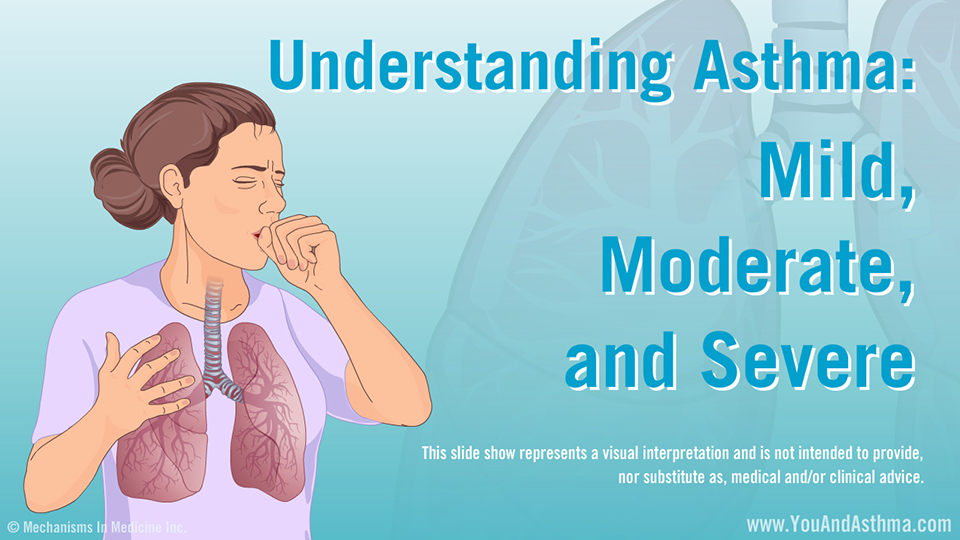
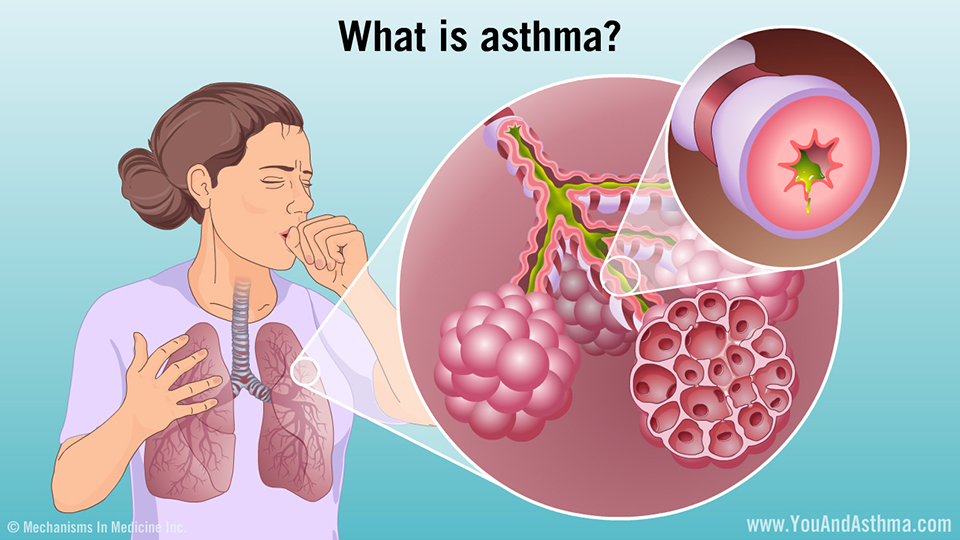
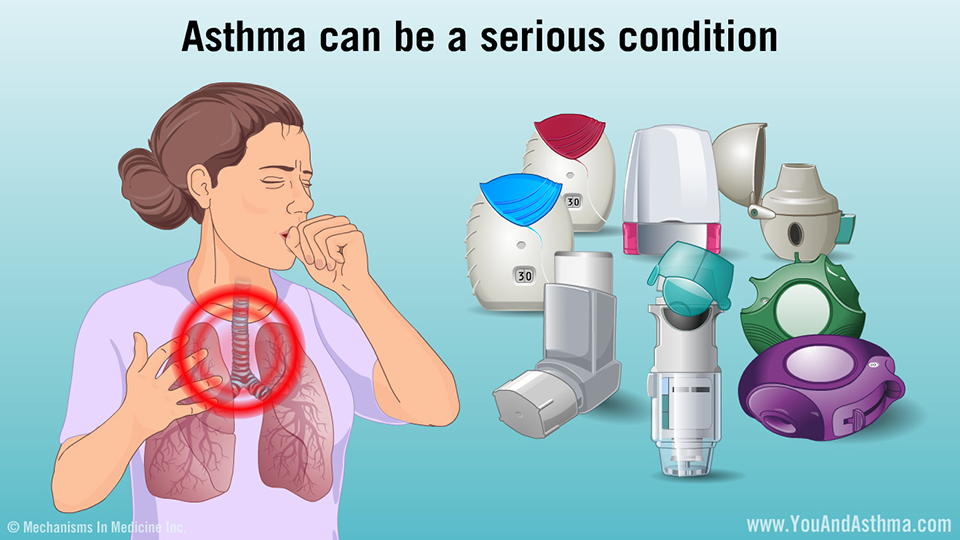
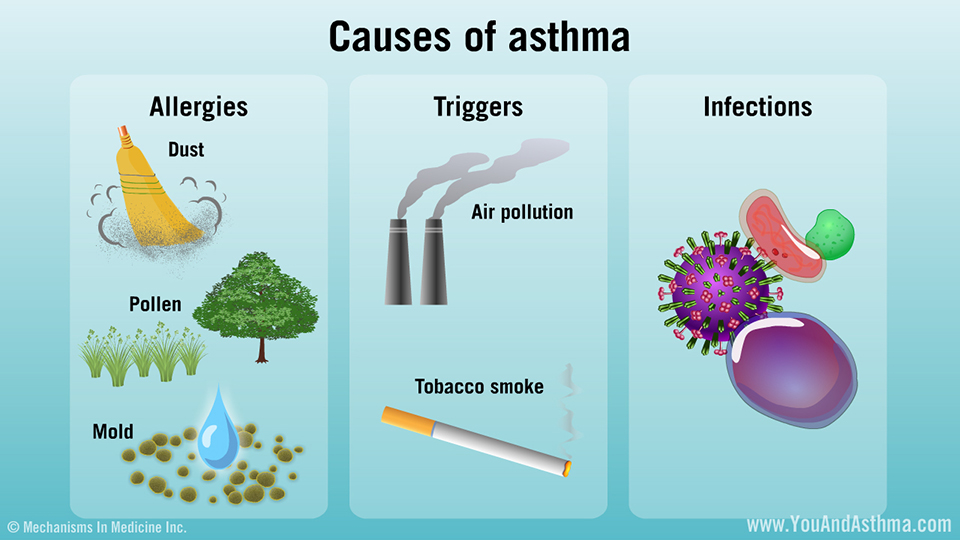
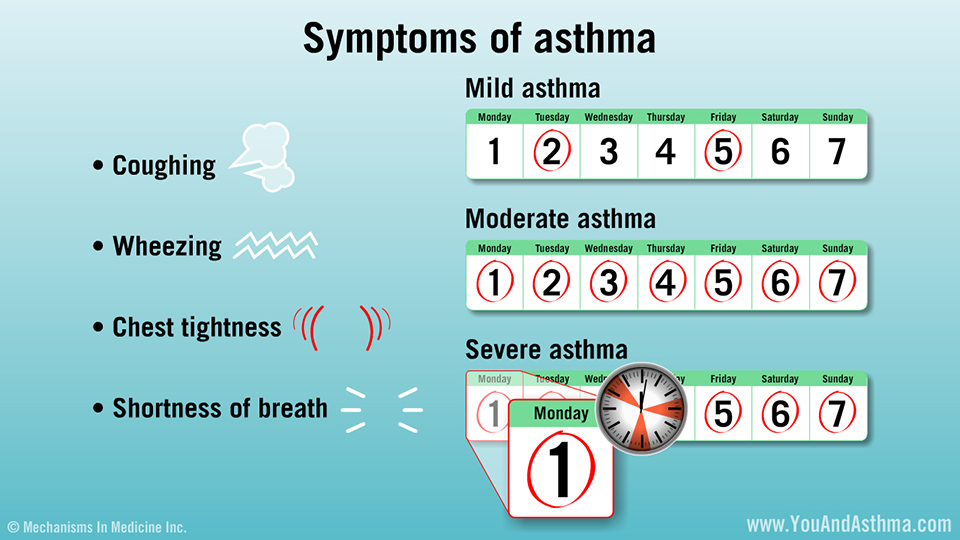
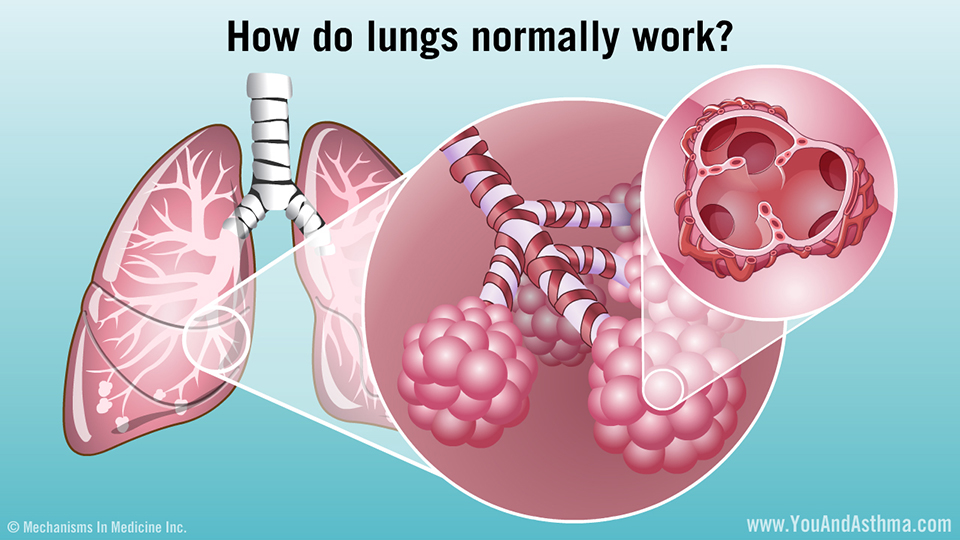
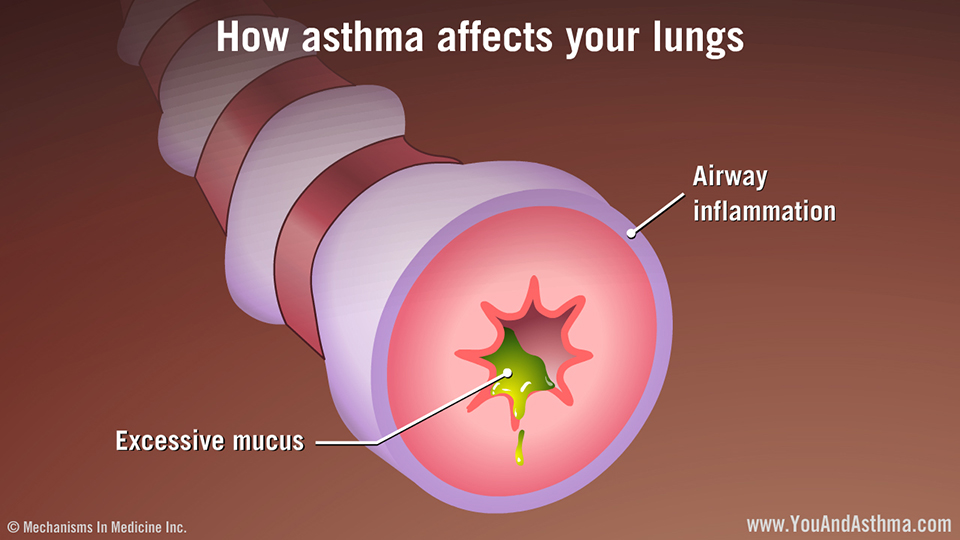
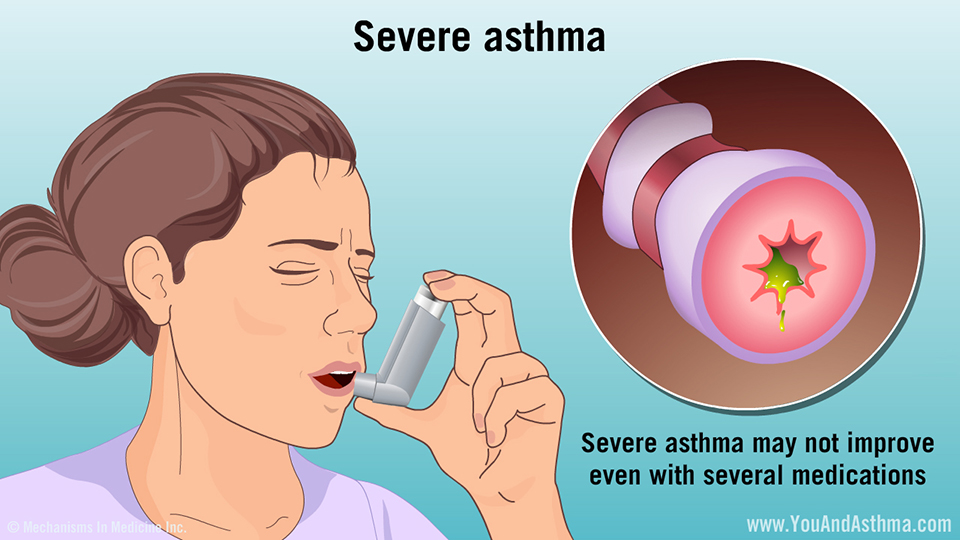
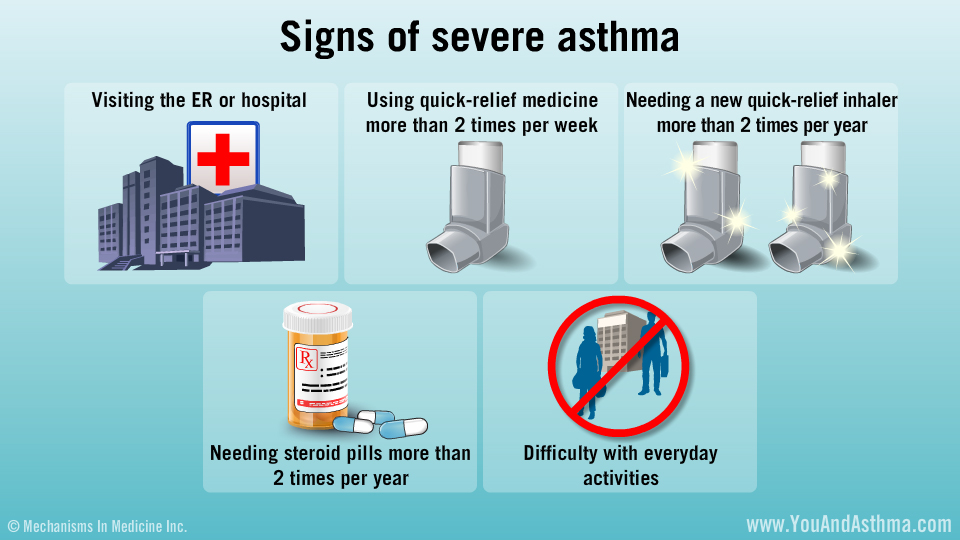
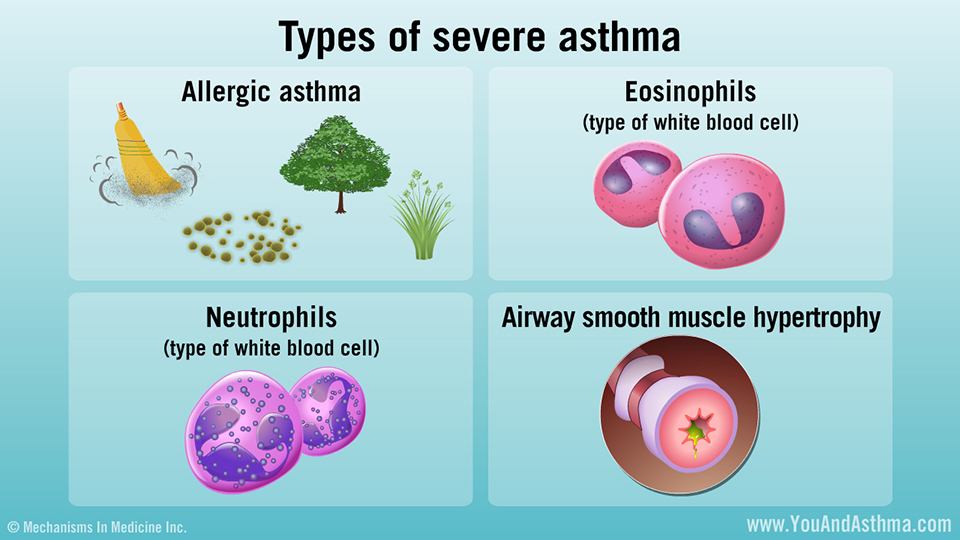
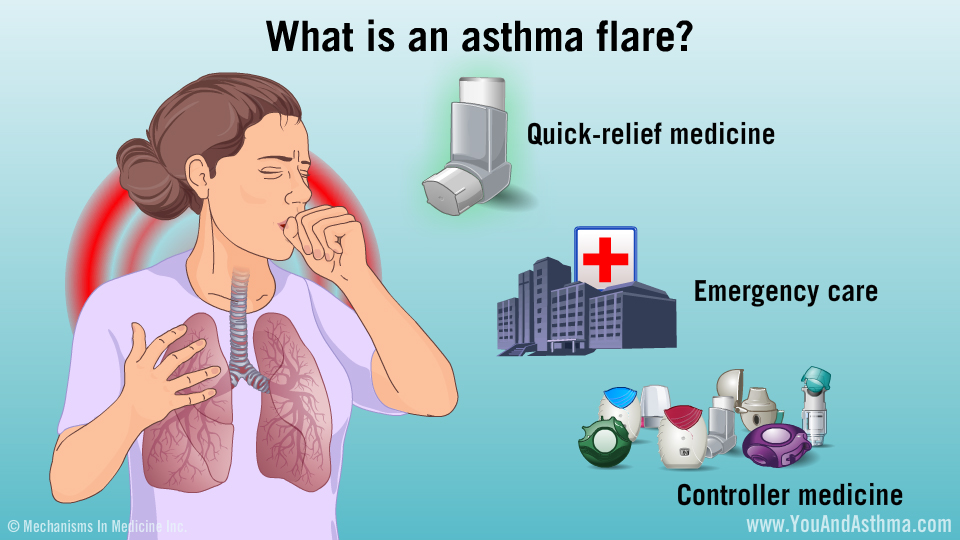
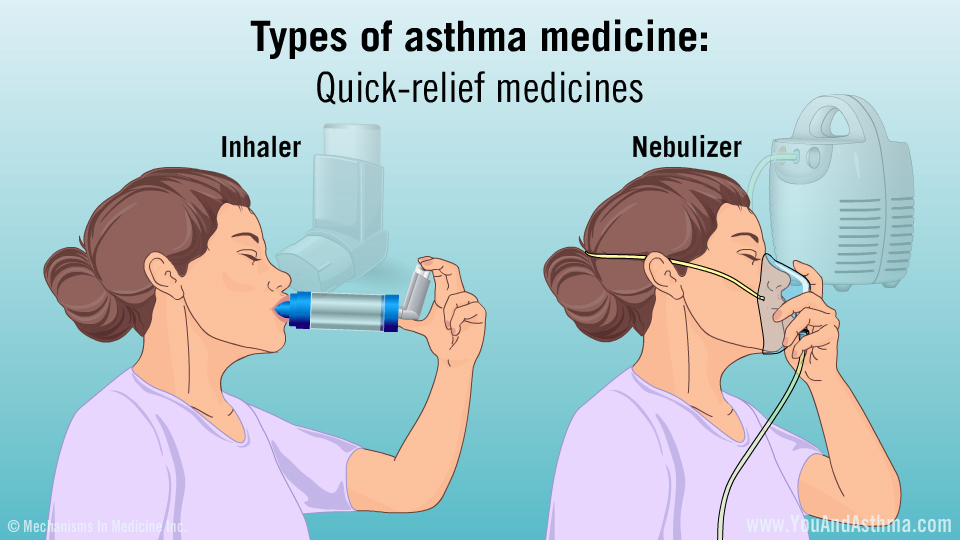
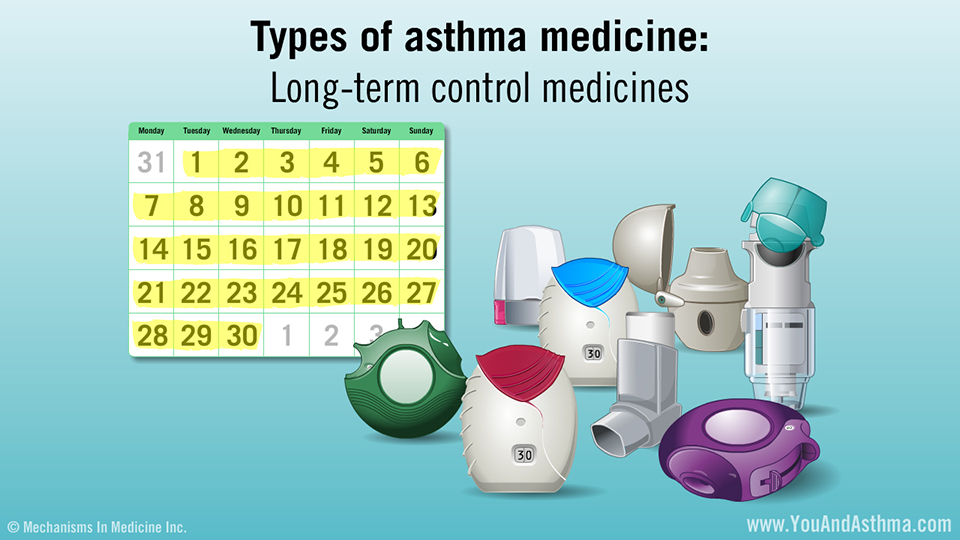
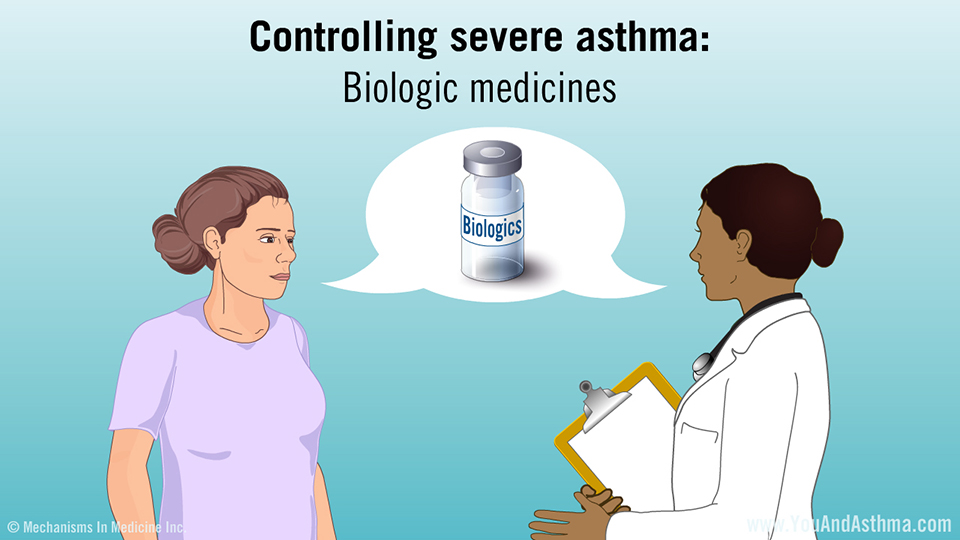
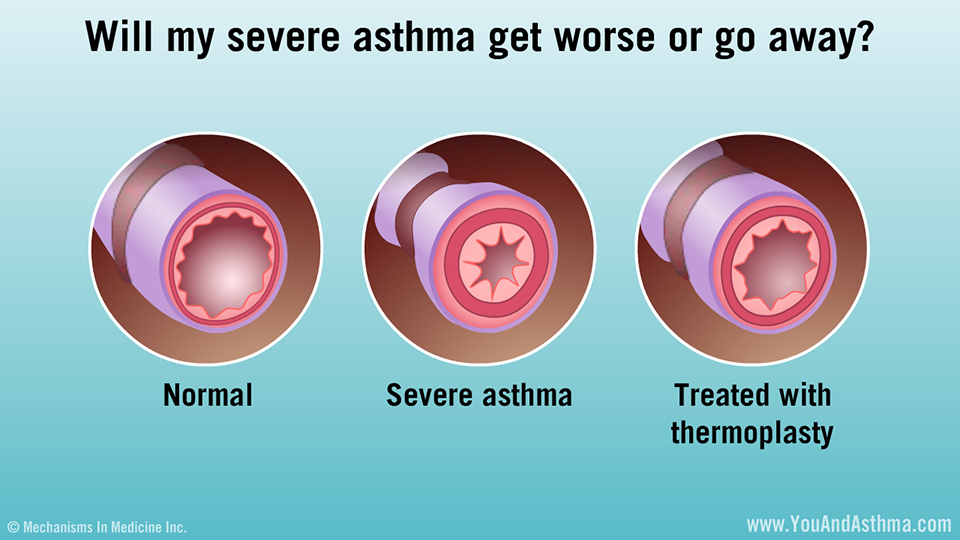
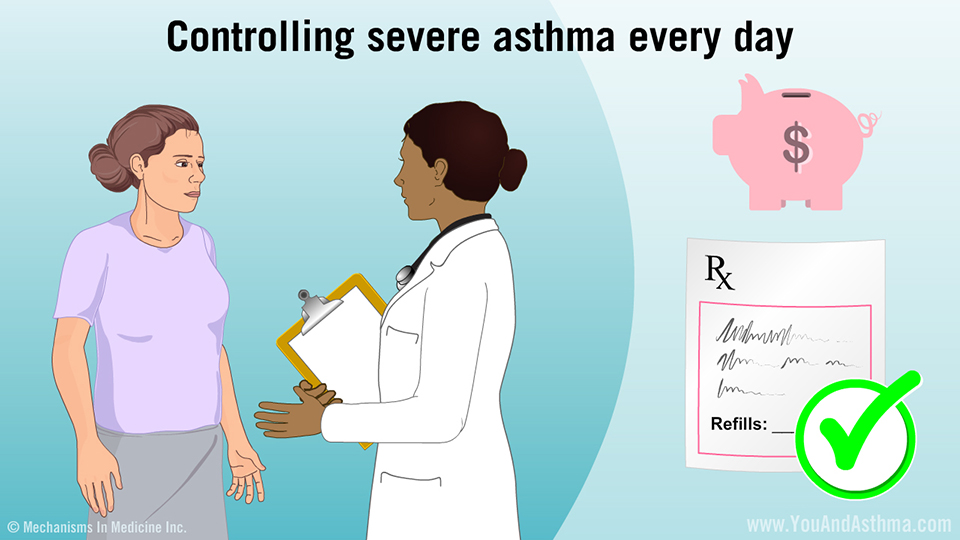
What is asthma?
Asthma is a chronic (long lasting) lung condition that causes coughing, wheezing, and breathing problems. It happens when inflammation and changes in the lungs reduce the flow of oxygen into the blood. You get less oxygen to all your cells, which is needed to survive.Asthma can be a serious condition
Asthma can be a serious condition. Without proper treatment, the lungs become damaged and breathing becomes more difficult. Sudden symptoms can even cause death.
Asthma has no cure, but medication can control symptoms and keep the lungs working as well as possible.
Causes of asthma
Asthma has many possible causes, including:Symptoms of asthma
Asthma symptoms include coughing, wheezing, chest tightness, and shortness of breath.
If you have mild asthma, these symptoms can happen about twice a week.
If you have moderate asthma, these symptoms can happen every day, but not multiple attacks.
If you have severe asthma, these symptoms can happen several times a day, even if you take medication.
How do lungs normally work?
Your lungs contain small tubes called airways. When you breathe, air passes into these tubes. The oxygen enters your bloodstream through tiny sacs at the end of the airways, and your blood vessels carry it through your body.How asthma affects your lungs
Asthma inflames the airways, so they produce more mucus than normal. Air does not travel through them as well. Over time, they also become stiffer and thicker, not healthy and flexible.Severe asthma
Mild and moderate asthma usually improve with regular medication. Severe asthma may not improve, even if you take several medications.Signs of severe asthma
Other signs of severe asthma are:Types of severe asthma
Knowing the cause of severe asthma can be helpful in controlling it. Doctors now know there are at least 4 types of severe asthma:What is an asthma flare?
An asthma flare is when symptoms get worse suddenly. You might start coughing or not get enough air. If so, you need to use your quick-relief medicine. If your symptoms do not get better, you need emergency care. Avoiding this type of flare is an important reason to take controller medication regularly.Types of asthma medicine: Quick-relief medicines
Medicines that relieve asthma symptoms quickly are called quick-relief or rescue medicines. You breathe them through a handheld inhaler or nebulizer. You might use a spacer with an inhaler or a mask with a nebulizer. A mask or spacer helps you get the right amount of medicine. Use your quick-relief medicines as advised by your doctor when you have asthma symptoms.Types of asthma medicine: Long-term control medicines
Medicines that control asthma in the long term act on inflammation, swelling, and mucus that cause symptoms and damage. These are called control or maintenance medicines. You take these medicines every day, whether you have symptoms or not. If you have severe asthma, these medicines might not be enough.Controlling severe asthma: Biologic medicines
Treatment for severe asthma can help. This can include medicines called “biologics.” These medicines act on a specific molecule to treat the cause of asthma.
If you have severe asthma, you need to see an asthma specialist regularly. They can help you find a treatment that targets your specific type of asthma.
Will my severe asthma get worse or go away?
Severe asthma will not go away, although your symptoms might change over time. Having severe asthma can change your airways. The muscles can become thicker and overdeveloped, making it harder to get air through the lungs. You might need treatment called “bronchial thermoplasty” to smooth out the overdeveloped muscles. This helps them work better.Controlling severe asthma every day
Tell your doctor about any problems, such as not being able to afford your medicine or having new symptoms.
With the right medication and treatment, even people with severe asthma have hope.
Click here to take our SURVEY
Your feedback is important to us! We will use your feedback to develop future areas of content about asthma which will help other patients, caregivers, and families.
This website is part of the Animated Patient™ series developed by Mechanisms in Medicine Inc., to provide highly visual formats of learning for patients to improve their understanding, make informed decisions, and partner with their health care professionals for optimal outcomes.
Loading…